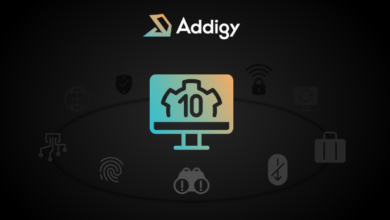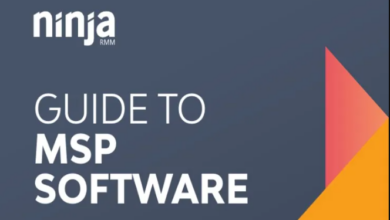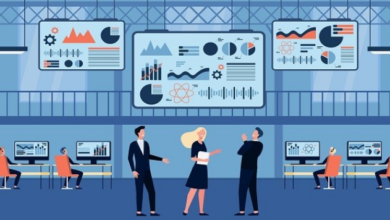Best RMM for MSP

Best RMM for MSP – Remote monitoring and management (RMM) software is a critical tool for managed service providers (MSPs). It allows MSPs to remotely monitor and manage their clients’ IT infrastructure, including servers, workstations, networks, and applications.
The Best RMM Software for MSPs in 2024

Remote monitoring and management (RMM) software is a critical tool for managed service providers (MSPs). It allows MSPs to remotely monitor and manage their clients’ IT infrastructure, including servers, workstations, and network devices. RMM software can help MSPs to:
- Improve efficiency: RMM software can automate many of the tasks that MSPs perform on a regular basis, such as patch management, software deployment, and antivirus scanning. This can free up MSPs to focus on more strategic tasks, such as providing customer support and growing their business.
- Reduce costs: RMM software can help MSPs to reduce their costs by automating tasks and reducing the need for manual intervention. This can lead to lower labor costs and improved profitability.
- Improve security: RMM software can help MSPs to improve the security of their clients’ IT infrastructure by providing features such as patch management, antivirus scanning, and intrusion detection. This can help to protect clients from data breaches and other security threats.
What to Look for in RMM Software
Choosing the right RMM software is crucial for managed service providers (MSPs) to effectively manage their clients’ IT infrastructure. Here’s a breakdown of key factors to consider when selecting an RMM solution:
Features:
- Core functionalities: Look for essential features like patch management, software deployment, remote access & control, and antivirus scanning.
- Automation capabilities: Consider how well the RMM automates tasks like patching, scripting, and security alerts. This frees up your staff for more strategic work.
- Scalability: Ensure the RMM can handle your current client base and grow alongside your business.
- Platform compatibility: Does the RMM support the operating systems (Windows, macOS, Linux) and devices (servers, desktops, mobile) you typically manage for clients?
Usability:
- Learning curve: The RMM interface should be intuitive and easy for your team to learn and use efficiently.
- Reporting & dashboards: Clear and customizable reports and dashboards are essential for keeping track of client IT health and generating reports for them.
Cost:
- Pricing model: Many RMMs offer tiered pricing based on the number of endpoints managed. Consider if this scales well with your business model.
- Value proposition: Evaluate the features offered against the cost to ensure you’re getting the most value for your investment.
Support:
- Availability & responsiveness: Reliable and timely technical support is vital when issues arise.
- Training resources: Does the vendor provide training materials and resources to help your team get the most out of the RMM?
Additional factors:
- Security features: Look for built-in security features like two-factor authentication and data encryption to protect client data.
- Integrations: Does the RMM integrate with your existing PSA (Professional Services Automation) or other tools you use for a streamlined workflow?
By carefully considering these factors, you can choose an RMM software that empowers your MSP to deliver exceptional service to your clients and scale your business effectively.
Benefit Best RMM for MSP
The benefits of using a best-in-class RMM software are numerous for MSPs. Here’s a breakdown of some key advantages:
Improved Efficiency and Productivity:
- Automation: RMM automates repetitive tasks like patching, software deployment, and antivirus scans, freeing up your team’s time for strategic work like client consultations and proactive problem-solving.
- Remote Management: RMM allows you to remotely monitor and manage client IT infrastructure, eliminating the need for frequent on-site visits, saving time and resources.
- Centralized Platform: Manage all your clients’ systems from a single platform, streamlining workflows and improving technician productivity.
Enhanced Client Security:
- Proactive Threat Detection: RMM continuously monitors systems for vulnerabilities and suspicious activity, allowing you to identify and address potential threats before they become major security incidents.
- Patch Management: Automated patch deployment ensures all client systems are up-to-date with the latest security fixes, minimizing their exposure to exploits.
- Standardized Security Policies: Implement and enforce consistent security policies across all your clients’ systems, simplifying security management and reducing risks.
Increased Customer Satisfaction and Profitability:
- Improved Uptime and Performance: Proactive monitoring and maintenance through RMM helps prevent downtime and ensure optimal performance of client systems, leading to higher customer satisfaction.
- Faster Issue Resolution: RMM allows you to identify and troubleshoot client issues remotely, leading to quicker resolution times and improved customer service.
- Scalability and Growth: A good RMM can scale to accommodate your growing client base, enabling you to take on more clients and increase profitability.
Additional Benefits:
- Improved Reporting and Visibility: Generate comprehensive reports on client IT health and performance, providing valuable insights for both your team and your clients.
- Simplified Compliance Management: RMM can help ensure your clients’ systems meet industry regulations and compliance standards.
By leveraging the capabilities of a best-in-class RMM, MSPs can significantly improve their efficiency, enhance client security, and ultimately drive business growth and profitability.
Best RMM Software for MSPs
There are many different RMM software solutions available on the market. Some of the most popular RMM software solutions include:
- NinjaOne: NinjaOne is a comprehensive RMM software solution that offers a wide range of features, including patch management, software deployment, antivirus scanning, and remote control. NinjaOne is easy to use and affordable, making it a good choice for MSPs of all sizes.
- Atera: Atera is a cloud-based RMM software solution that offers a wide range of features, including patch management, software deployment, antivirus scanning, and remote control. Atera is easy to use and affordable, making it a good choice for MSPs of all sizes.
- Syncro: Syncro is a cloud-based RMM software solution that offers a wide range of features, including patch management, software deployment, antivirus scanning, and remote control. Syncro is easy to use and affordable, making it a good choice for MSPs of all sizes.
- ITarian: ITarian is an on-premises RMM software solution that offers a wide range of features, including patch management, software deployment, antivirus scanning, and remote control. ITarian is a good choice for MSPs who need a powerful and reliable RMM solution.
- N-able N-central: N-able N-central is a cloud-based RMM software solution that offers a wide range of features, including patch management, software deployment, antivirus scanning, and remote control. N-able N-central is a good choice for MSPs who need a scalable and flexible RMM solution.
Conclusion
RMM software is a critical tool for MSPs. It can help MSPs to improve efficiency, reduce costs, and improve security. When choosing RMM software, MSPs should consider the features, ease of use, and pricing of the software.




